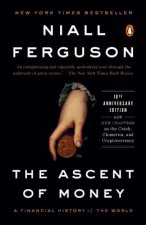
Kód: 04461334
Political Violence in the Weimar Republic, 1918-1933
Autor Schumann
In noting that political violence was the product of choices made by political actors rather than the result of irresistible forces ...Schumann issues a pertinent warning while making a first-rate contribution to the scholarly lit ... celý popis
- Jazyk:
 Angličtina
Angličtina - Väzba: Brožovaná
- Počet strán: 398
Nakladateľ: Berghahn Books, 2012
- Viac informácií o knihe

Mohlo by sa vám tiež páčiť
-

Both Feet Firmly Planted in Midair
34.68 € -4 % -

Tariffs, Blockades, and Inflation
168.52 € -

Solemn Mass for a Full Moon in Summer
12.58 € -13 % -

My Brother's Keeper
12.78 € -12 % -

Kempe's Operative Neurosurgery
126.98 € -

Querflöte, Schülerheft
15.24 € -4 %
Darujte túto knihu ešte dnes
- Objednajte knihu a vyberte Zaslať ako darček.
- Obratom obdržíte darovací poukaz na knihu, ktorý môžete ihneď odovzdať obdarovanému.
- Knihu zašleme na adresu obdarovaného, o nič sa nestaráte.
Viac informácií o knihe Political Violence in the Weimar Republic, 1918-1933
Nákupom získate 83 bodov
 Anotácia knihy
Anotácia knihy
In noting that political violence was the product of choices made by political actors rather than the result of irresistible forces ...Schumann issues a pertinent warning while making a first-rate contribution to the scholarly literature on the Weimar Republic. Central European History [A[ well-documented and skillfully argued book. German Studies Review In his exceptional regional study of the Prussian province of Saxony, Schumann offers a richly detailed analysis of political violence in the Weimar Republic...This is a wordy but methodical and ultimately convincing work of scholarship. Choice Schumann ...calls into question some assumptions, provides interesting nuances, and helps to refine our understanding of the nature of political violence in Weimar Germany. Journal of Modern History ...provides a well-documented, solid narrative and challenging analysis of Weimar's political violence...American Historical Review [This] definitive work, rich in source material and analysis, dispels stereotypes of political violence in the Weimar Republic. Historische Zeitschrift The Prussian province of Saxony-where the Communist uprising of March 1921 took place and two Combat Leagues (Wehrverbande) were founded (the right-wing Stahlhelm and the Social Democratic Reichsbanner) - is widely recognized as a politically important region in this period of German history. Using a case study of this socially diverse province, this book provides a comprehensive analysis of political violence in Weimar Germany with particular emphasis on the political culture from which it emerged. It refutes both the claim that the Bolshevik revolution was the prime cause of violence, and the argument that the First World War's all-encompassing "brutalization" doomed post-1918 German political life from the very beginning. The study thus contributes to a view of the Weimar Republic as a state in severe crisis but with alternatives to the Nazi takeover. Dirk Schumann is Professor of History at Georg-August University, Gottingen. He is the co-editor of Life After Death (2003), Violence and Society after the First World War (first issue of Journal of Modern European History [2003]), Between Mass Death and Individual Loss (2007). Most recently, he has edited Raising Citizens in the "Century of the Child": The United States and German Central Europe in Comparative Perspective (2010).
 Parametre knihy
Parametre knihy
Zaradenie knihy Knihy po anglicky Humanities History History: specific events & topics
33.65 €
- Celý názov: Political Violence in the Weimar Republic, 1918-1933
- Autor: Schumann
- Jazyk:
 Angličtina
Angličtina - Väzba: Brožovaná
- Počet strán: 398
- EAN: 9780857453143
- ISBN: 0857453149
- ID: 04461334
- Nakladateľ: Berghahn Books
- Hmotnosť: 576 g
- Rozmery: 227 × 152 × 19 mm
- Dátum vydania: 01. April 2012
Obľúbené z iného súdka
-

Man's Search for Meaning
7.05 € -7 % -

Women, Race & Class
10.02 € -23 % -

The Rape of Nanking
15.95 € -23 % -

Conquerors
11.86 € -18 % -

If This Is A Man/The Truce
14.42 € -23 % -

Delirious New York
30.07 € -16 % -

Diary of a Young Girl
10.12 € -22 % -

Edge of the World
14.83 € -23 % -

Influence of Sea Power Upon History, 1660-1783
25.16 € -19 % -

Siam Mapped
38.67 € -

The Complete MAUS
18.72 € -14 % -

Man's Search For Meaning
16.57 € -23 % -

Holocaust Industry
12.37 € -15 % -

Ordinary Men
10.94 € -24 % -

Homo Deus
12.78 € -24 % -

Bloodlands
12.88 € -24 % -

Eichmann in Jerusalem
11.04 € -23 % -

Brief History of Japan
14.01 € -19 % -

Secret Lives of Colour
14.62 € -24 % -

Scouting for Boys
10.84 € -20 % -

Ascent of Money
17.90 € -14 % -

Imperialism: The Highest Stage of Capitalism
7.46 € -13 % -

East West Street
10.22 € -24 % -

Mein Kampf - The Ford Translation
41.94 € -

Man's Search For Meaning
10.94 € -24 % -

Diary of a Young Girl
9.61 € -

Stoned
11.14 € -23 % -

French Revolution
15.44 € -23 % -

Twelve Years a Slave
3.57 € -24 % -

More Money Than God
18.61 € -17 % -

Women's Work
20.66 € -10 % -

Origins of Museums
58.93 € -17 % -

Eichmann in Jerusalem
15.34 € -21 % -

Mein Kampf
31.81 € -

Square and the Tower
15.03 € -24 % -

My Mad Fat Diary
12.27 € -23 % -

Monk
9.40 € -17 % -

History of the World in Twelve Maps
16.57 € -23 % -

Empires of the Sea
14.42 € -23 % -

White Gold
14.42 € -23 % -

Titanic and Other Ships
13.91 € -

Golden Atlas
27.41 € -23 % -

Access to History for the IB Diploma Rights and protest Study and Revision Guide
37.75 € -

Kafka Was the Rage
16.05 € -8 % -

Better Angels of Our Nature
20.86 € -23 % -

Good Night Stories for Rebel Girls: 50 Postcards
15.65 € -5 % -

Night
11.14 € -23 % -

Victorian House
18.72 € -23 % -

World Until Yesterday
16.57 € -23 %
Osobný odber Bratislava a 2642 dalších
Copyright ©2008-24 najlacnejsie-knihy.sk Všetky práva vyhradenéSúkromieCookies



 21 miliónov titulov
21 miliónov titulov Vrátenie do mesiaca
Vrátenie do mesiaca 02/210 210 99 (8-15.30h)
02/210 210 99 (8-15.30h)